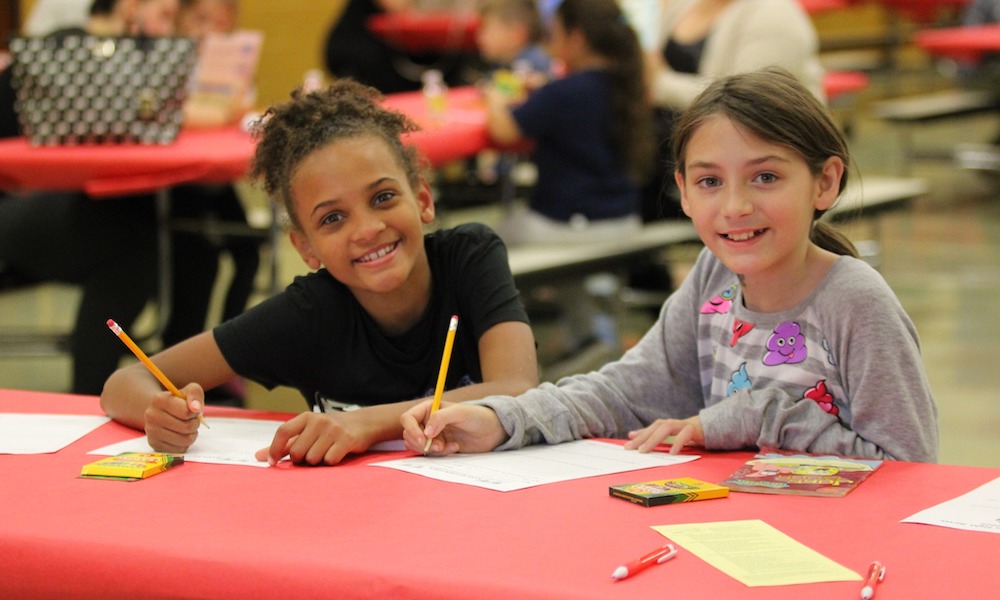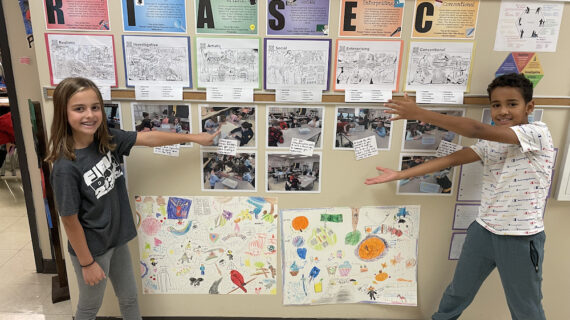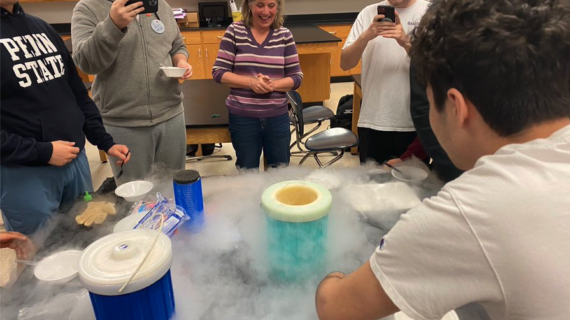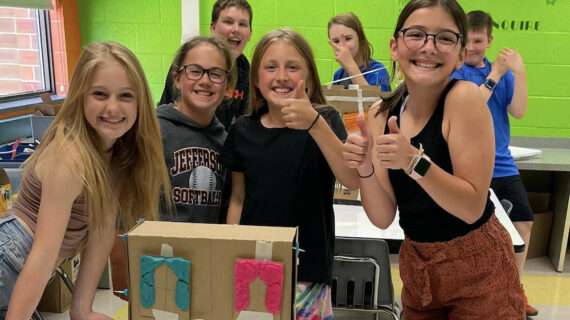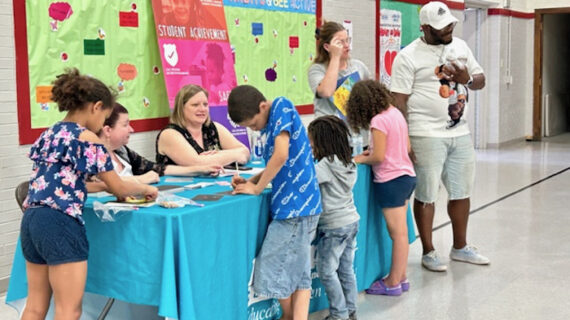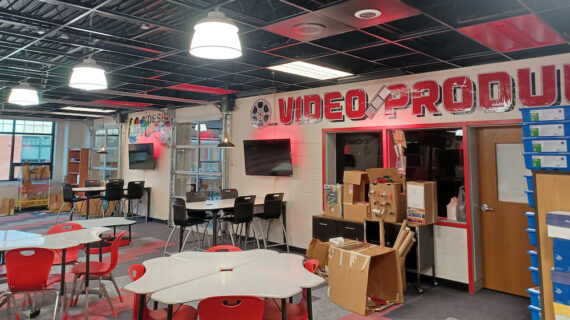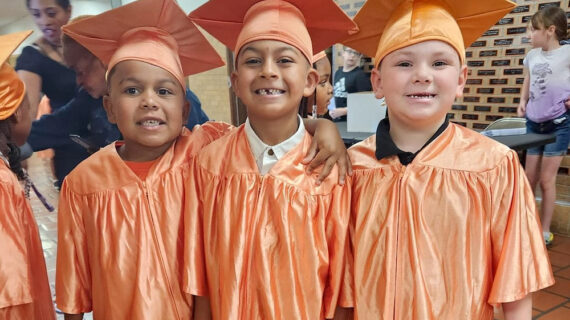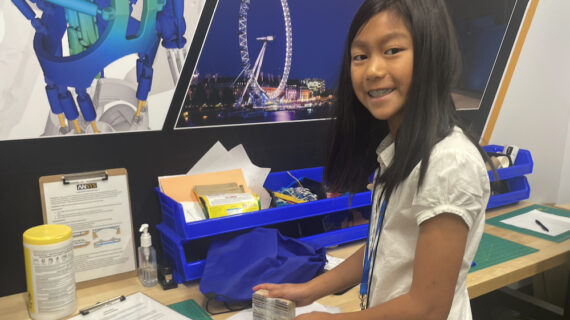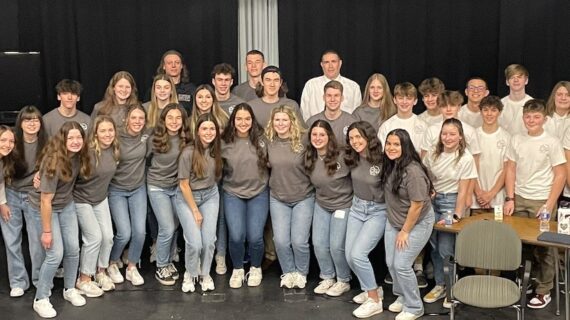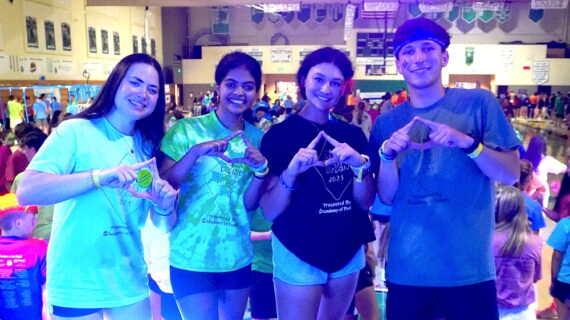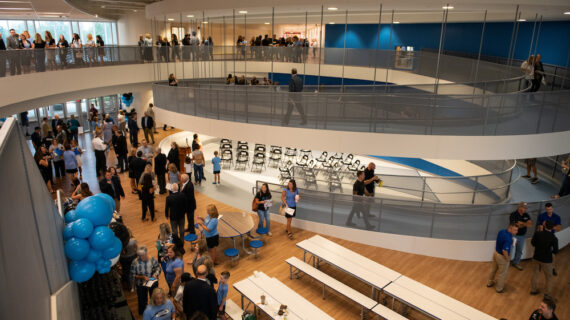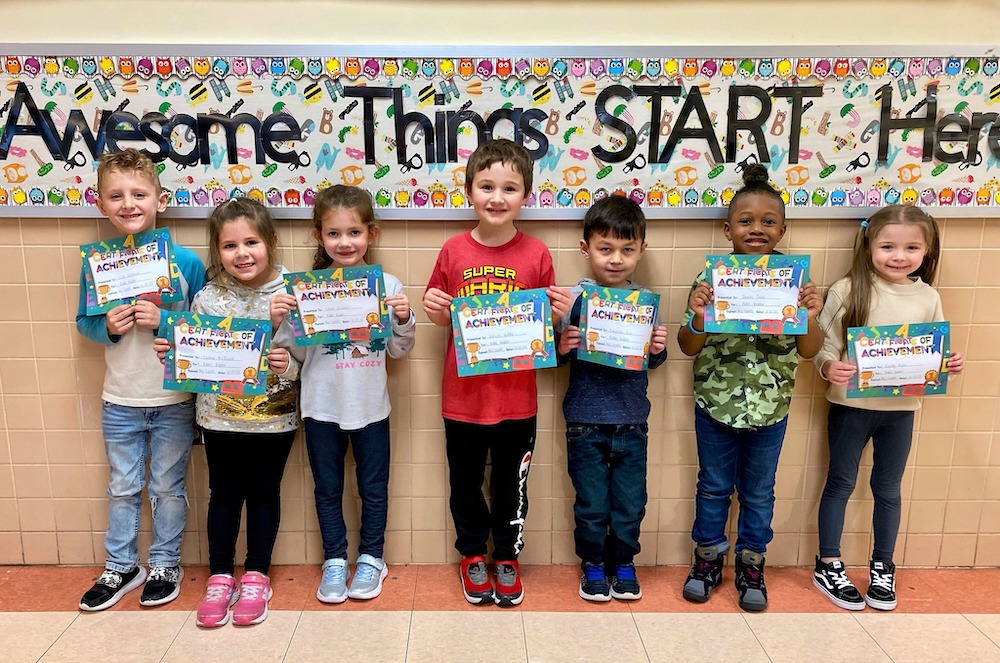
At Highlands, it’s never too early to think about what you might want to be
This story is one in a series created in collaboration with the AASA Learning 2025 Alliance to celebrate the work of groundbreaking school districts in the Pittsburgh region. Kidsburgh will share these stories throughout 2023.
The words “career ready” don’t mean much when you’re six years old. To the kindergarteners at Highlands Elementary School, those words signify a handful of memorable days when a firefighter or a police officer dropped by their classroom to discuss their jobs.
But the adults at Highlands think a lot about what it means to be career ready.
They’ve pored over the finer points of Pennsylvania’s Career Education and Work Standards. They’ve done a deep dive into the district’s current curriculum, searching for opportunities to introduce potential career paths and teach vital “soft skills” like answering questions during a job interview. They’ve compared notes with other districts throughout the Pittsburgh region and sought grant funding to make ambitious ideas into reality.
All of this is happening with one goal in mind: to help Highlands students of all ages prepare for careers that can bring them stability, satisfaction, and a path toward success.
“Some of our students will go to college. Many of them go into the world of work or go to trade school. And others struggle to find their career path,” says Highlands Superintendent Dr. Monique Mawhinney. “So, we’re trying to create a career and workforce readiness program that provides every one of our kids with realistic opportunities that are right for them.”
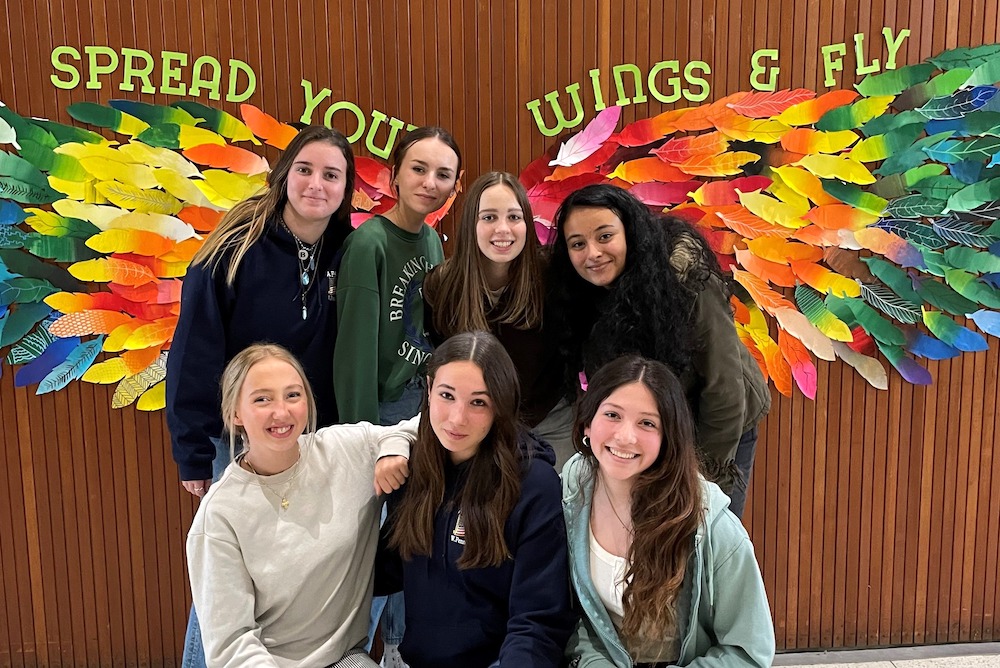
LAYING THE GROUNDWORK
Those opportunities begin in kindergarten, when students meet parents from the community who work as first responders. Called Highlands Heroes Day, it’s the first of many stops that students experience along the path to career readiness.
“We’ve identified those grade levels when we want students to participate in culminating activities that support the career and workforce activities they completed throughout the year,” Mawhinney says. ‘We’re establishing partnerships with local and neighboring businesses to assist in providing our students with meaningful career and work experiences that will set them up for success regardless of their pathway. That could include college, trade school, or employment. Those pursuing a military career can pursue any of these pathways.”
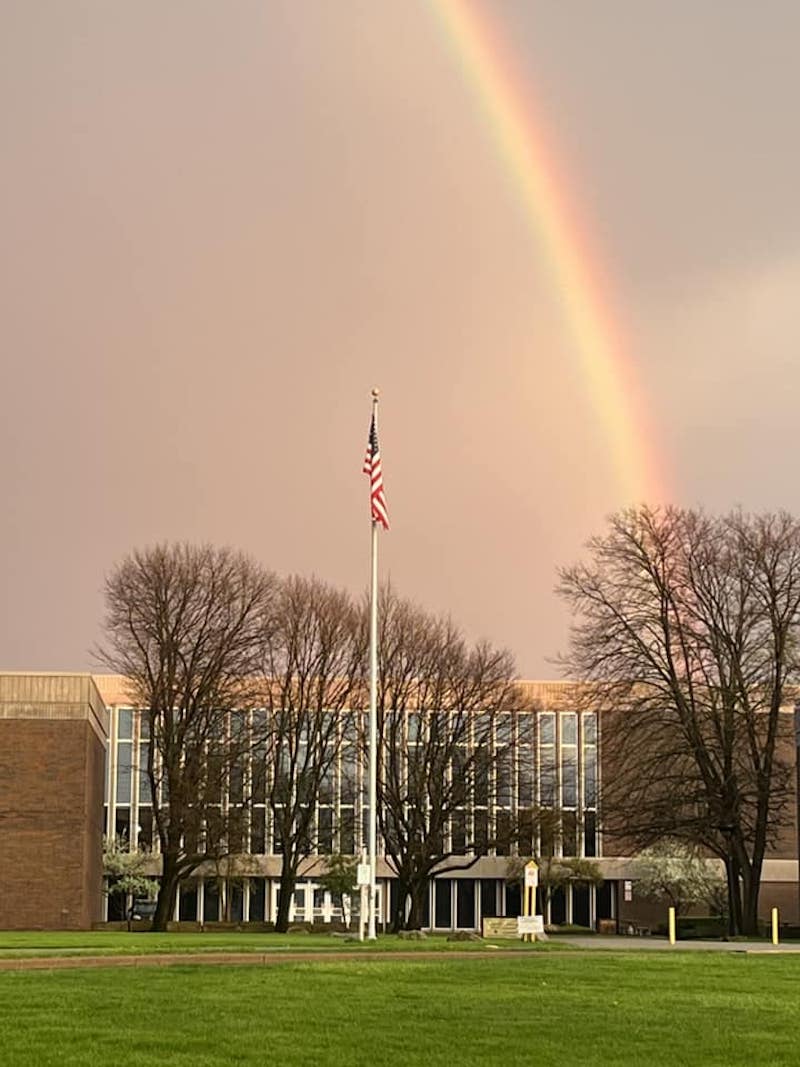
Along with these experiences, kids at Highlands will take interest surveys and skill assessments throughout their education. By the time they reach seventh or eighth grade, the plan is to connect them with job-shadowing opportunities within the community. And high schoolers will have a chance to participate in internships or work as volunteer IT technicians, gaining work experience while helping the school troubleshoot problems with school-issued devices.
Traditional classes are also getting a subtle but essential makeover.
If you attended high school in the United States, you likely had an English class where you read a novel, then wrote a paper about what you learned. In history class, you probably did something similar: researched or read about a moment in history, then summed up your discoveries.
“What if, instead of reading a novel and doing a research paper, our students researched three careers and the history of those jobs and then wrote about it?” Mawhinney asks. “They could even write their potential resume for those jobs. This will allow them to practice essential skills needed regardless of the pathway and careers they pursue.”
CORE CLASSES, NEW SKILLS
That’s just one possibility as the leadership team at Highlands reevaluates current classes.
“Students also need to know how to communicate with people,” Mawhinney says. “What do you do in an interview? How do you dress for an interview? We’re looking to incorporate these soft skills into our typical classes while still teaching the standards.”
New classes, including personal finance, are designed to help high schoolers transition successfully into adulthood. Highlands will also add a Family and Consumer Science (FCS) class next year – a course the district hasn’t had for several years. The class will teach valuable life skills while pointing kids toward potential careers as cooks, bakers, and other service jobs.
Funding constraints are always a challenge. But Highland’s leadership team isn’t content to let a modest budget restrict what’s possible for the children they’re helping to raise.
Mawhinney and Assistant Superintendent Dr. Cathleen Cubelic have taught themselves the art of grant writing to fund needed projects. Grant funding was instrumental in Highlands joining the Western Pennsylvania Learning 2025 Alliance, a cohort of school districts. Led by local superintendents and AASA, the country’s school superintendents association, the Alliance convenes for workshops, networking opportunities, and professional development.
“I’ve been sending many of my committee members to the AASA workshops on career and workforce readiness and making connections with other districts for my teams to visit,” Mawhinney says.
So, whether the methods are tweaked curricula, collaboration with the local community, or inspiration from networking with other school districts, the goal is the same. Says Mawhinney: “We’re trying to be creative in how we’re planning our Career and Workforce Readiness Program to make sure that we’re meeting the needs of all our kids.”
Want to download this story? Click here for a PDF.
